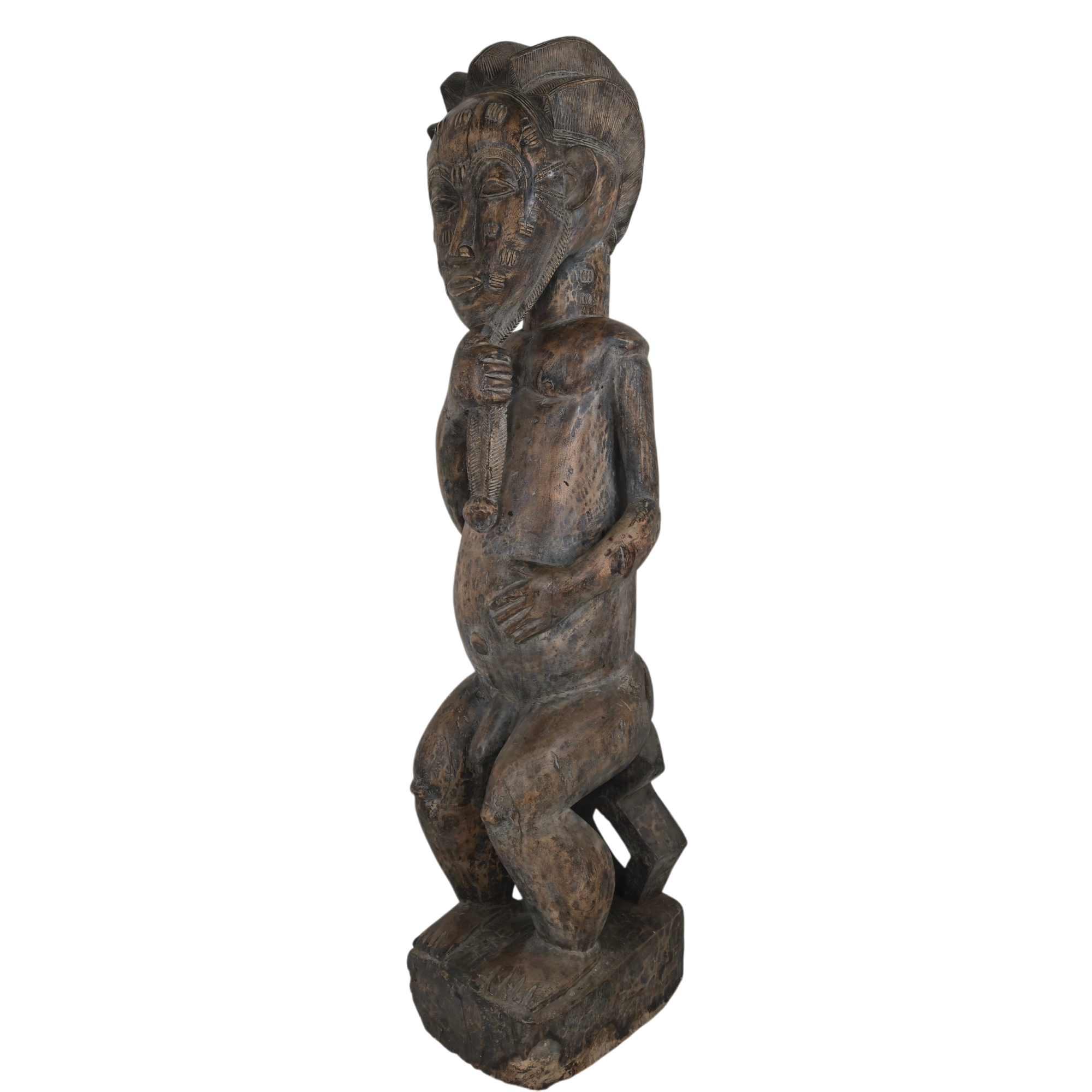The Bamileke ethnicity is an ethnic group from Cameroon, mainly located in the West and Northwest regions of the country. The Bamileke are known for their complex and sophisticated art, culture, and social organization.
The Bamileke have a highly hierarchical society, with local and regional chiefs who are often wealthy and influential men. The Bamileke's traditional religion is centered around the veneration of ancestors and nature spirits, who are considered benevolent or malevolent forces.
The Bamileke are also known for their art, particularly for their woodcarving and textile weaving. They produce masks, statues, furniture, musical instruments, and decorative objects, which are often used in religious and cultural ceremonies.
The Bamileke's economy is based on agriculture, livestock rearing, and commerce. They cultivate cassava, maize, beans, and other crops, and raise livestock for meat and milk. The Bamileke are also known for their textile industry, producing high-quality fabrics and traditional clothing such as Ndop and Toghu.
The Bamileke's history is marked by their resistance to colonization and their struggle to preserve their cultural identity and autonomy. Today, the Bamileke continue to play an important role in the cultural and economic life of Cameroon.
In summary, the Bamileke ethnicity is known for their highly hierarchical society, their traditional religion centered around the veneration of ancestors and nature spirits, their art of woodcarving and weaving, and their economy based on agriculture, livestock rearing, and commerce. Their history is marked by their struggle to preserve their cultural identity and autonomy against colonization.
